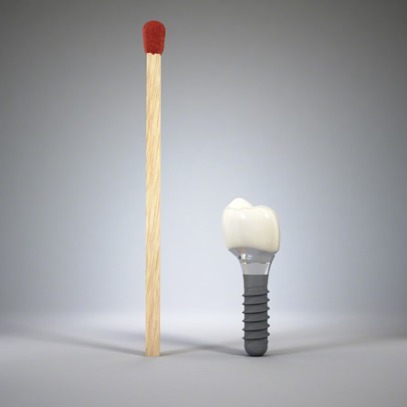What are dental implants?
A dental implant is a screw or cylinder-shaped artificial substitute for a natural tooth root made of titanium or titanium alloy.
It is placed in the position where a missing tooth used to be in the jaw bone and acts as a foundation for a new tooth or teeth. It behaves like a tooth root by bonding to the underlying jaw bone.
Some months after placement, a titanium post called an abutment is connected to the implant to allow support for the replacement tooth or teeth.
Dental implants should only be placed in a healthy mouth and thus it may be necessary to have other remedial treatment prior to commencing implant treatment. This may include control of gum disease and hygiene, root canal therapy and treatment of tooth decay.
Heavy drinking or smoking can increase the number of problems associated with initial healing and may negatively influence the long-term health of gum and bone surrounding each implant as well as the remaining natural teeth.
Although not an absolute contraindication, these ‘habits’ may make treatment planning less certain. It is rare, however, to have health problems that prevent the use of dental implants.
The dental implant itself resembles a precisely manufactured screw made from titanium with a specially roughened surface which makes it very compatible with bone. he implant is about the same size as the root of a natural tooth
The implant is about the same size as the root of a natural tooth.
Once the implant is solid in the bone, a special titanium post, called an abutment, is screwed into the implant.
The abutment allows fixation of the final part of the implant – either a crown for single-tooth replacement, a bridge-retainer or a precison-attachment component for denture retention.






